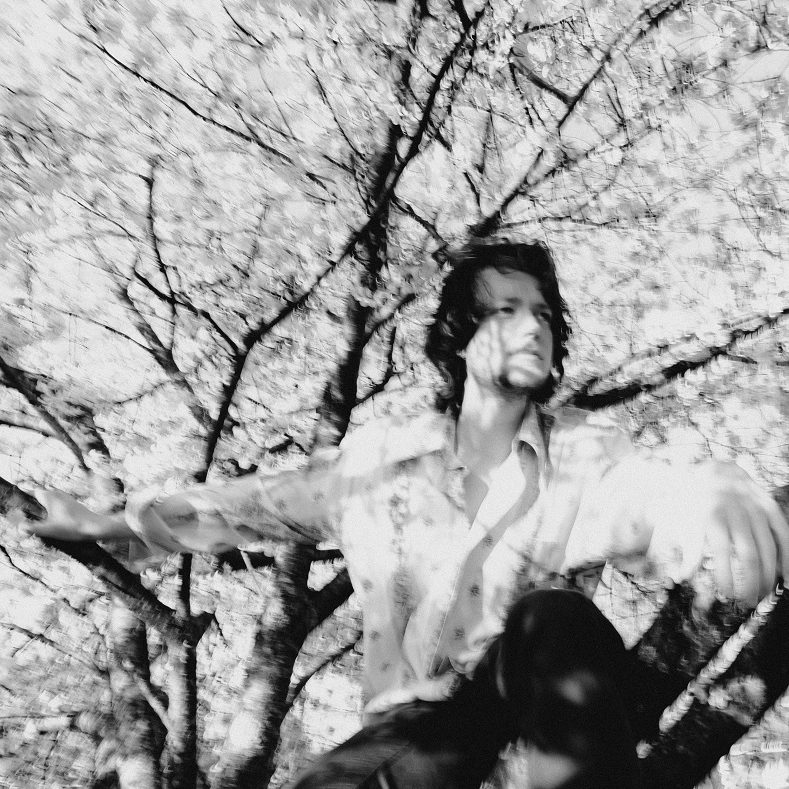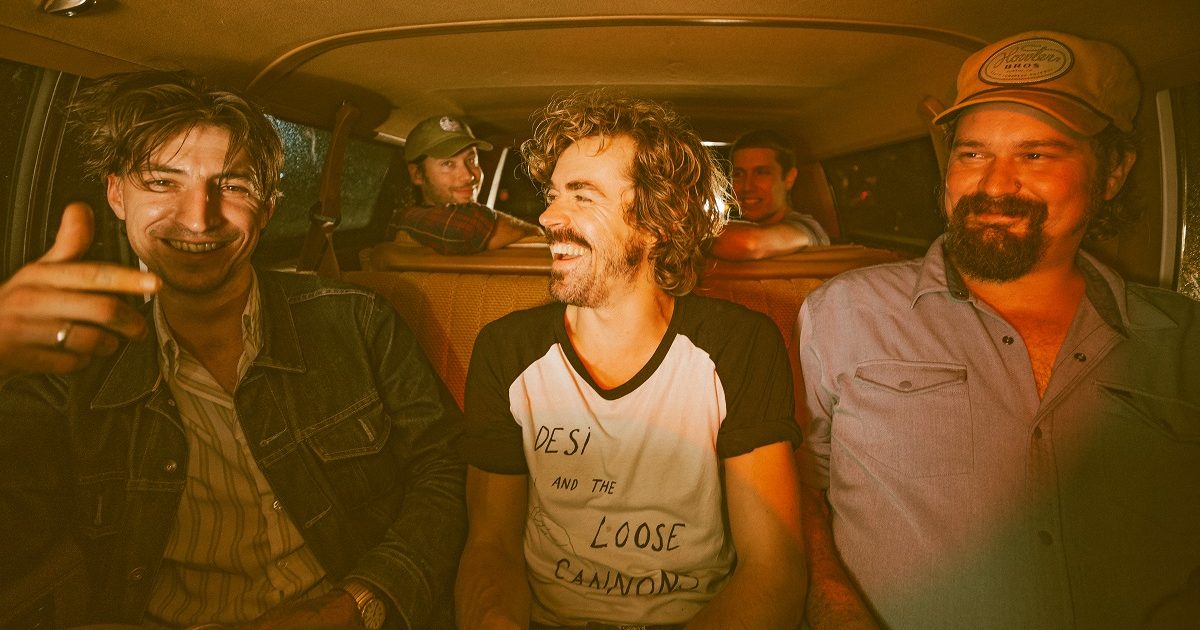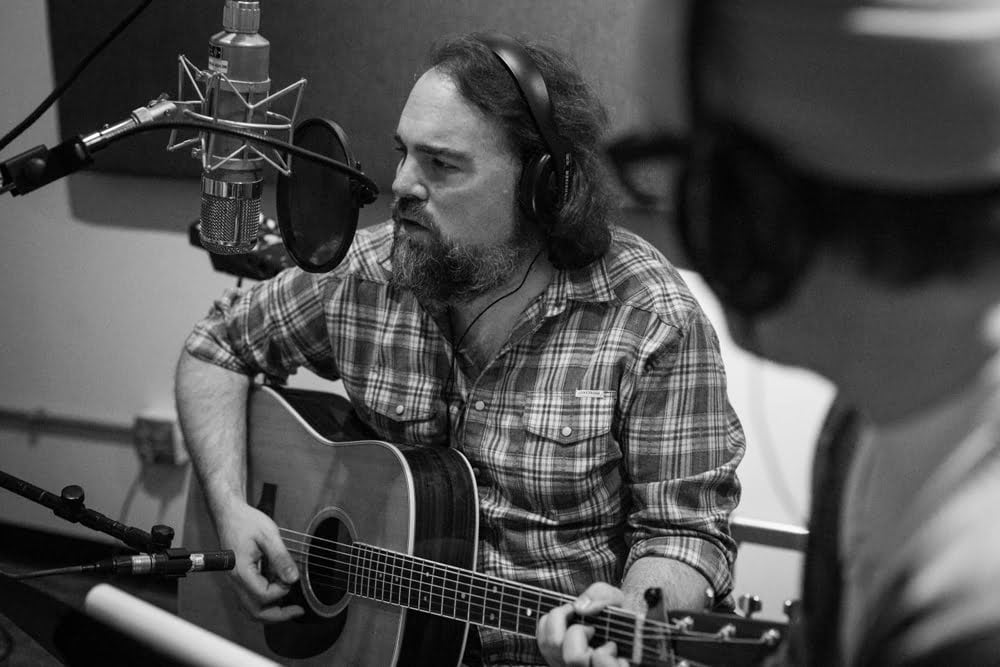It’s a rather warm evening in the mountains of Western North Carolina. With a sweltering sun slowly fading behind the ancient Blue Ridge peaks, Graham Sharp takes a seat at a picnic table underneath the welcoming shade of an old tree.
He takes a sip of a craft ale and gazes out upon the festive meadows of live music and fellowship behind Highland Brewing on the outskirts of Asheville. For Sharp, it’s a rarity these days for him to be able to sit back and enjoy the city he’s called home for the last 22 years.
Co-founder and de facto leader of the Steep Canyon Rangers, Sharp is at the center of one of the most enduring and cherished acts in the realms of Americana, bluegrass, and indie-folk — whether on its own merit or backing Steve Martin and Martin Short.
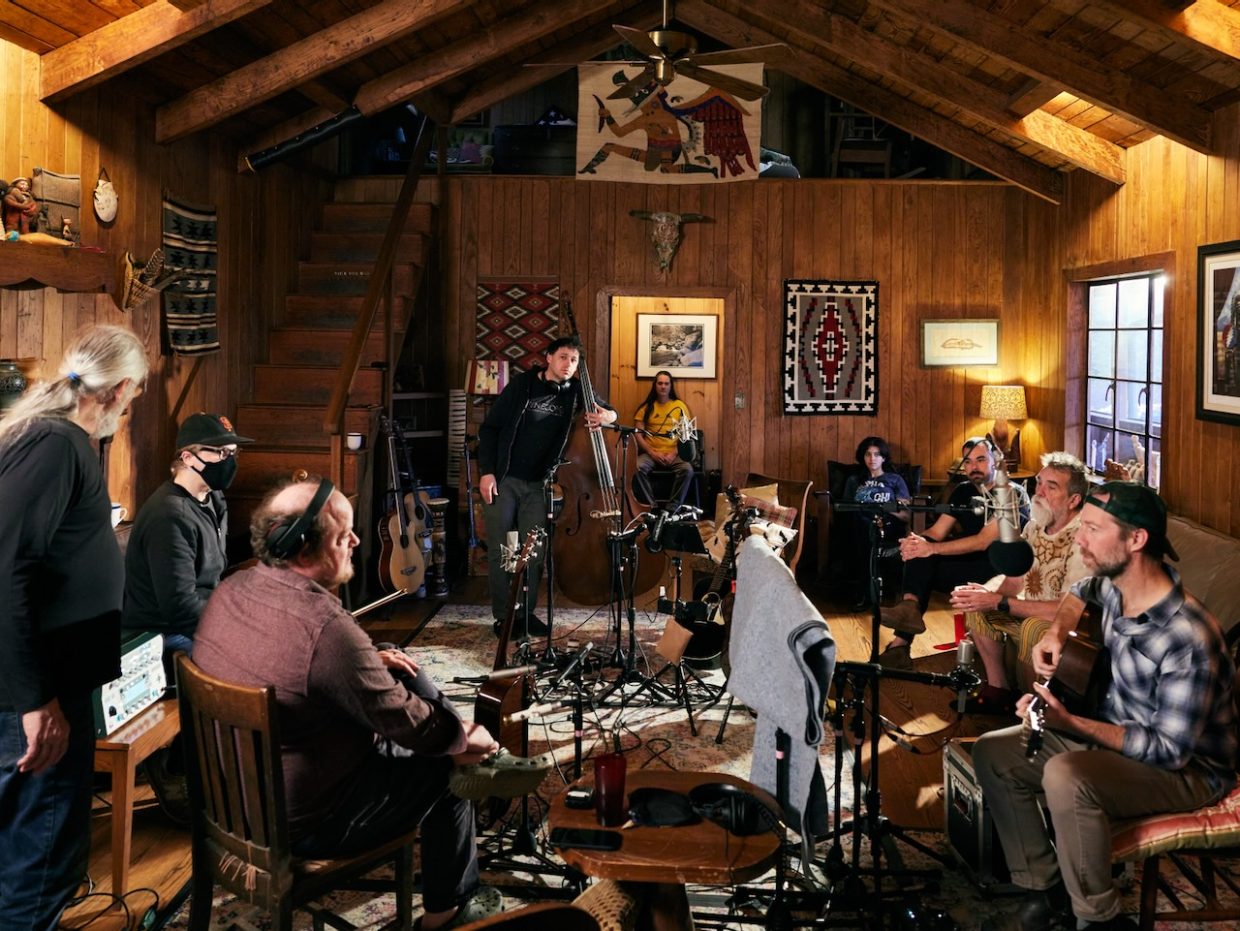
At 46, Sharp has spent the majority of his adult life either on the road, onstage, or in the studio. And yet, like any endlessly restless and creatively curious musician worth one’s salt, Sharp feels like he’s just getting started.
“I’m the luckiest man on earth to be able to wake up in the morning and think, ‘I want to play banjo and write songs today,’” Sharp says. “Or am I going to get on a bus and go play some shows? That’s a good feeling to be excited about what you do — 25 years from now, I’ll probably be feeling the same way.”
What started as a rag-tag bunch of green horns jamming traditional bluegrass numbers in the dorms at the University of North Carolina at Chapel Hill, has evolved into a bonafide group selling out venues coast-to-coast.
Throughout the Rangers’ history there’ve been awards and accolades, including three Grammy nominations and one win. There’s also been big stages (Red Rocks Amphitheatre, the Ryman Auditorium, Hollywood Bowl) and even bigger crowds (Bonnaroo, MerleFest, Hardly Strictly Bluegrass).
But, the core of the group resides in its unrelenting quest to dig deeper within itself to uncover another layer of sound and sonic possibility. Most recently, the band has gone through its biggest test to date, with the departure last year of founding member and arguably the gravitational center of the act, singer/guitarist Woody Platt, who decided to take a step back from the spotlight and focus on family.
“There’s a lot of things you can’t control and Woody leaving is a pretty good lesson in that fact that there’s only so much that you have influence over,” Sharp says. “And I’ve seen that with everybody [in the Rangers]. Everybody had worked hard, stepped up and defined their roles better in the band — just buckle down and push ahead.”
Fellow Western North Carolina singer-songwriter Aaron Burdett stepped into the fold to not necessarily replace Platt, but give the Rangers a new avenue to stride down, in terms of songwriting approaches and musical interpretations.
“We really tried to bring Aaron in to have another voice in there. I love having him as another writer,” Sharp says. “We both generate our own stuff and bounce ideas off of each other, where some of it feels like going back to the beginning [of the band] in the feeling.”
And with the Rangers’ latest album, Morning Shift, the sextet now finds itself at the dawn of a new, unwritten chapter of its continued trajectory as a group as sonically elusive as it is bountiful in its melodic pursuits.
“I don’t think you’d call it a chip on the shoulder,” Sharp says. “But, it feels like there’s just a drive we all have to just get better, to have more people hear what we’re doing — and we know what it takes to get there at this point.”
Hunkering down for a week in the off-the-beaten-path, unincorporated community of Bat Cave, North Carolina, the Rangers transformed a small mountain getaway into a makeshift studio. They also enlisted the help of Darrell Scott, the musical legend being tapped to produce the record.
“Darrell isn’t going to mince words — he’s pretty decisive,” Sharp says. “And Darrell spans all these [musical] worlds. He’s a monster picker and singer, and a great writer. We felt like he also comes from that bluegrass [scene], but also is outside of it, [like we are].”
What resulted is an album of genuine depth and stoic intent, renewal amid a reinvigorated sense of self. It’s a full-circle kind of thing, with the Steep Canyon Rangers not only reflecting on the past, but, more importantly, still chasing after that unknown horizon of artistic discovery. Our BGS interview with Sharp at Highland Brewing in Asheville continued with a conversation about the group’s changing lineup and dynamic.
It’s been a big year for you guys in a lot of ways — physically, sonically. What’s the dynamic right now? What’s kind of changed?
Graham Sharp: Well, what I’ve noticed is my default method [is] when things go weird, to just work harder.
There’s more of a round-robin feel in the band than before.
GS: Yeah. I get that. That’s what people say, that the dynamic reminds them of The Band, where there’s three or four different singers. And that was part of the deal, part of the thought process of, “Let’s take this role that’s the prototypical lead singer/guitar role and de-emphasize that.” Not totally strip it of everything, but the guitar player’s going to sing 40 or 50 percent of the songs. He’s not going to sing 80 percent of the songs. And part of that plays like a little bit of a safeguard, where if something happens with Aaron two years from now, we don’t want to be back in the same boat, where it’s like we’re losing a big hole out of the middle of the band.
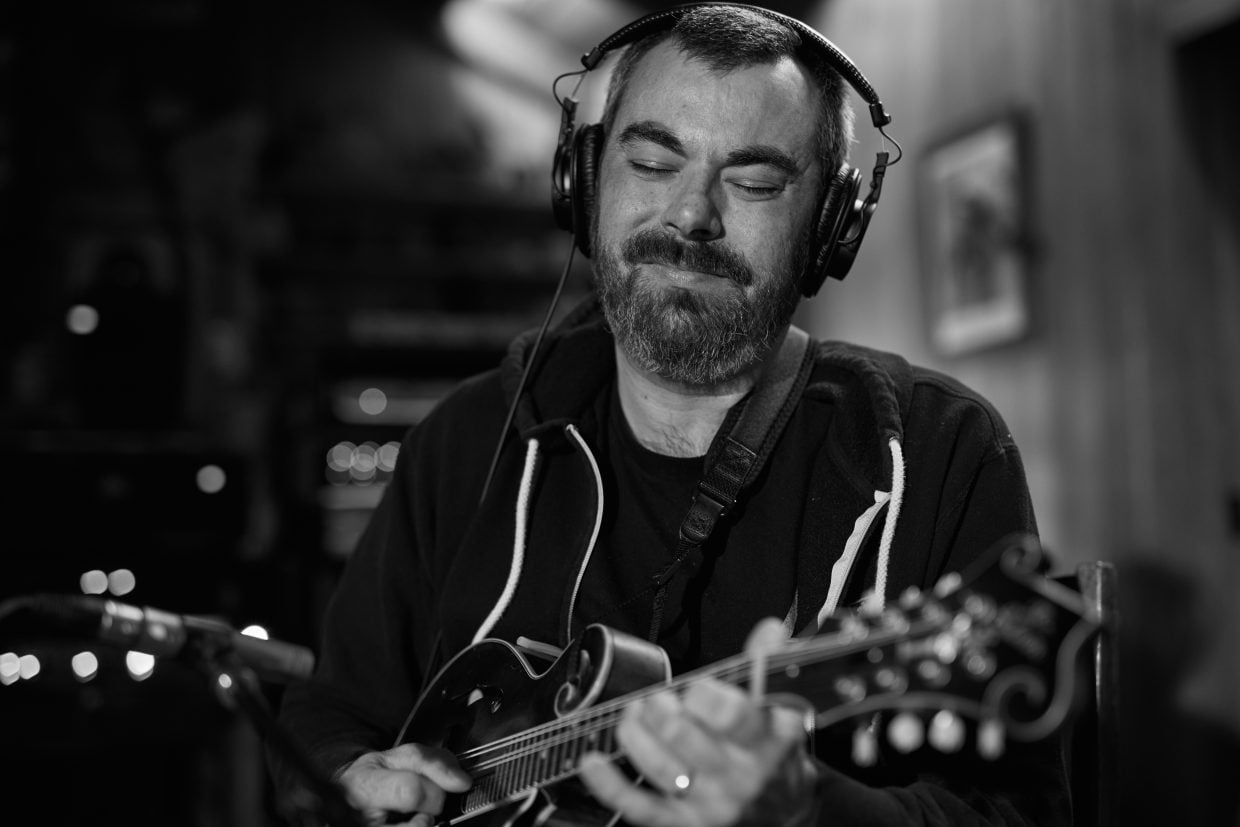
Like equally distributed weight now.
GS: Yeah. That’s kind of how we want it. And I think that’s what it needs to be. There’s a lot of talent in [the band] and maybe this is a chance to uncover some of it.
Not to take anything away from Woody and his contributions, but it feels more of a cohesive unit than I’ve ever seen it before.
GS: Isn’t that crazy? And that’s what people have been saying. I don’t know what that is except to say everybody’s stepping up and also making sure everybody else shines a little bit more.
I also wonder if that plays into more camaraderie in the band.
GS: Maybe. I mean, the band is a brotherhood. You couldn’t have more camaraderie than we have. But, that said, if people are feeling like their talents aren’t being put into full use – there’s one thing about being great friends and being brothers, but also on some kind of subconscious level, if you feel like there’s stuff that’s not being utilized, then maybe there’s something else you should be doing, you know?
And there’s maybe a reaffirming of gratitude for how far you guys have come.
GS: No doubt, man. That’s definitely one of the overwhelming things that has come out of this [latest chapter], is just gratitude to still be doing it — just keep going and keep doing it. [With Morning Shift], this record feels like a jumping off point.
The album also reinforces that elusive nature that’s always resided in the Rangers, where the last thing you ever want to be is pigeonholed, musically.
GS: Yeah. But, I love to play the banjo, so I don’t want to grow away from that. And [sometimes] I feel like my writing doesn’t always lend itself to the banjo. So, a lot of my stuff on the banjo ends up being able to figure out how you play to this weird song that doesn’t really call for banjo like a bluegrass song would — that’s part of the fun of [songwriting].
Aaron has now been in the band for a year. What’s surprised you the most about what he’s brought to the Rangers?
GS: We knew he was a great singer when we hired him, so that didn’t come as a surprise. When he sent us his demos, we knew this was our guy. But, the biggest surprise has been just how far apart our musical worlds are. He’s a very different musician than anybody we’ve had in the band. There’s things that he does in his own rhythm. He just has a different touch on the rhythm guitar.

There’s definitely a feeling of reinvigoration within the band. Almost 25 years into the Rangers, the band is still at the top of its game. But, playing devil’s advocate, I think there’s now other mountains you can see that you may want to climb?
GS: I think you’re right. I mean, as a band, you only have one introduction to the world. Maybe we were lucky because we got two, the other with Steve Martin. But, right now, it feels more like a collective up onstage. And I think that’s invaluable. Everybody is putting in the work. For example, I’ve always played banjo for a couple hours a day. But, maybe now, I play it for three hours a day. You’re just stepping things up, bringing things up a notch.
What really sticks out when you look back at the early years of the band, this handful of college kids learning to play bluegrass music?
GS: It was 1999. Somewhere in my junior or senior in college. It was myself, [former bassist] Charles [Humphrey] and Woody. Then, [mandolinist] Mike [Guggino] showed up later because he was Woody’s friend from Brevard, [North Carolina]. There was no ambition at the time. The ambition was really, “Let’s learn to play [bluegrass] so it sounds like it does on these records.”
New Grass Revival. [Russell Moore and] IIIrd Tyme Out. We never got to where we sounded like any of those bands. We could never sound like Lonesome River Band. But, take a little bit of this, take a little bit of that and go play onstage at bluegrass festivals. Go to Sears and get some clothes that match. And [a lot of the bluegrass] legends were still around and playing those festivals. Earl [Scruggs] was still around. John Hartford. Jimmy Martin. You know, when you’re young and rising, you’ve got all the momentum, all the buzz. And when you’re established and older, it’s different. Right now, we’re in this in-between period where it’s not newer and it’s not legacy. But, we’re not Billy Strings or Molly Tuttle, either. I still just love going out [there onstage] and proving it every single time — that feeling of doing what it takes to be our best each night.
All photos: Joey Seawell

